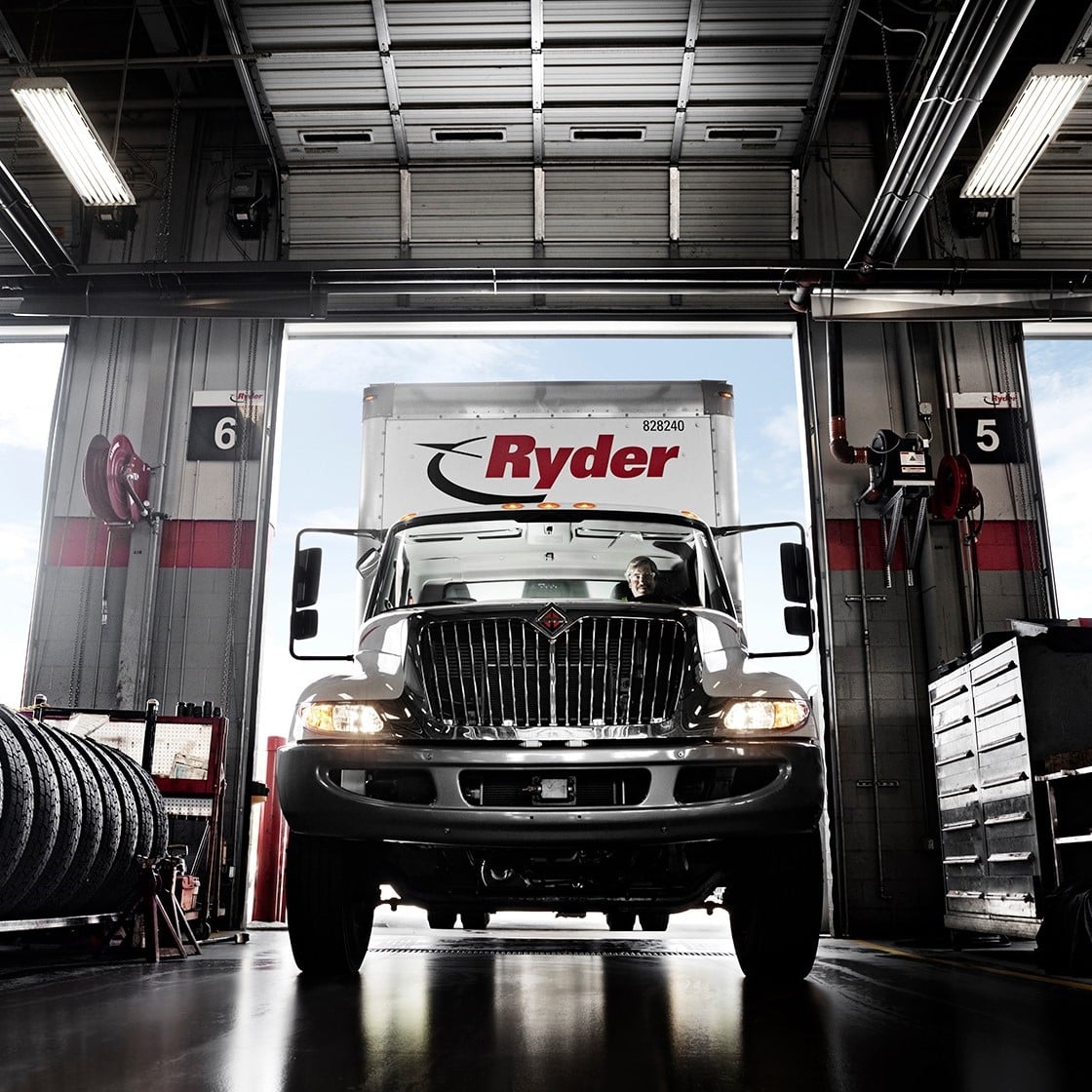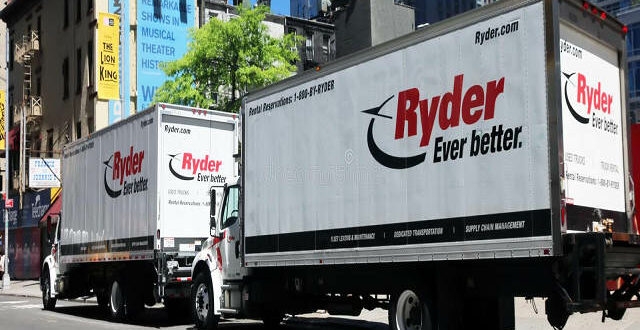Ryder Rental Truck Sizes: Your Comprehensive Guide to Choosing the Right Vehicle cars.truckstrend.com
In the world of logistics, transportation, and even personal relocation, having the right vehicle for the job is paramount. Whether you’re a business owner needing to move inventory, a contractor transporting equipment, or an individual embarking on a significant household move, the choice of rental truck size can dramatically impact efficiency, cost-effectiveness, and safety. Ryder, a titan in the commercial fleet management and logistics industry, offers a robust selection of rental trucks designed to meet a diverse range of hauling needs. Understanding Ryder rental truck sizes is not just about knowing dimensions; it’s about making an informed decision that streamlines your operations and ensures your cargo arrives safely and on time.
This comprehensive guide will delve into the various Ryder rental truck sizes available, providing you with the insights necessary to select the perfect vehicle for your specific requirements. From compact cargo vans to expansive box trucks, we’ll explore their capacities, ideal uses, and essential considerations for a successful rental experience.
Ryder Rental Truck Sizes: Your Comprehensive Guide to Choosing the Right Vehicle
Understanding Ryder’s Diverse Fleet: Beyond Just Moving
While many associate Ryder with consumer moving, their core business revolves around providing commercial truck rental, leasing, and fleet management solutions to businesses of all sizes. This focus means Ryder’s rental fleet is meticulously maintained, often newer, and equipped with features that cater to professional demands, such as liftgates, E-track systems, and robust engine performance. This commercial-grade quality translates into reliability and performance for any renter, whether you’re a business or an individual.
Ryder’s rental offerings primarily fall into several key categories, each designed for specific hauling tasks:
1. Cargo Vans: Agile and Efficient
- Description: The smallest option in Ryder’s fleet, cargo vans are akin to large SUVs or minivans, but with the entire rear dedicated to cargo space. They are typically unibody vehicles, making them easy to drive and maneuver.
- Typical Dimensions (Cargo Area): Approximately 10-12 feet long, 5-6 feet wide, and 4.5-5 feet high.
- Cubic Feet: Roughly 300-400 cubic feet.
- Payload Capacity: Around 2,500-3,500 pounds.
- Ideal Use Cases: Perfect for small local deliveries, transporting tools and equipment, catering supplies, small apartment moves (studio or dorm room), or urban last-mile logistics. Their compact size makes parking and navigating city streets much simpler.

2. 16-Foot Box Trucks: The Versatile Workhorse
- Description: A popular choice for small-to-medium moves and various commercial applications. These trucks typically feature a separate cab and a rectangular cargo box, often equipped with a ramp for easier loading.
- Typical Dimensions (Cargo Area): Approximately 15-16 feet long, 7.5-8 feet wide, and 6.5-7 feet high.
- Cubic Feet: Roughly 800-900 cubic feet.
- Payload Capacity: Around 6,000-7,000 pounds.
- Ideal Use Cases: Suitable for moving a 1-2 bedroom apartment or small house, transporting furniture and appliances, delivering retail goods, or moving event equipment. They offer a good balance of size and maneuverability.


3. 22-Foot Box Trucks: Stepping Up in Capacity
- Description: A mid-sized box truck offering significantly more cargo space than the 16-foot option. These trucks are well-suited for larger residential moves or substantial commercial hauls. Many 22-foot models come with a tuck-away or walk ramp, and some may feature a liftgate.
- Typical Dimensions (Cargo Area): Approximately 21-22 feet long, 8 feet wide, and 8 feet high.
- Cubic Feet: Roughly 1,200-1,300 cubic feet.
- Payload Capacity: Around 8,000-10,000 pounds.
- Ideal Use Cases: Perfect for moving a 2-3 bedroom house, transporting larger quantities of retail inventory, construction materials, or equipment for medium-sized businesses.
4. 26-Foot Box Trucks: The Maximum Non-CDL Option
- Description: The largest non-CDL (Commercial Driver’s License) box truck offered by Ryder, this vehicle is designed for substantial cargo volumes. It’s the go-to for large residential moves or significant commercial freight. These trucks almost always include a heavy-duty ramp or a liftgate.
- Typical Dimensions (Cargo Area): Approximately 25-26 feet long, 8 feet wide, and 8.5 feet high.
- Cubic Feet: Roughly 1,500-1,700 cubic feet.
- Payload Capacity: Around 10,000-12,000 pounds.
- Ideal Use Cases: Ideal for moving a 3-5+ bedroom house, large-scale commercial deliveries, transporting bulky equipment, or moving an entire office. This size is designed to minimize trips for extensive hauling needs.
Beyond Box Trucks: Specialized Commercial Vehicles
While the focus for most renters will be on the box truck sizes, it’s worth noting Ryder’s extensive commercial fleet also includes:
- Stake Trucks/Flatbeds: For oversized or irregularly shaped items that don’t fit in an enclosed box, or for loads that need to be loaded from the side.
- Refrigerated Trucks: For transporting temperature-sensitive goods.
- Tractor-Trailers (Semi-Trucks): Requiring a CDL, these are for the heaviest and largest commercial hauls.
These specialized vehicles are typically rented under commercial agreements and require specific licensing and expertise.
Choosing the Right Ryder Truck Size: A Strategic Approach
Selecting the correct truck size is the most critical decision in your rental process. An undersized truck means multiple trips, wasted time, and increased fuel costs, while an oversized truck can be harder to drive, more expensive to rent, and less fuel-efficient. Here’s how to make an informed choice:
-
Assess Your Cargo Thoroughly:
- Volume: List all items you plan to move. For household goods, consider the number of rooms. For commercial goods, estimate the total cubic feet or pallet count.
- Weight: This is often overlooked. Heavy items like appliances, machinery, or construction materials can quickly consume your truck’s payload capacity, even if they don’t fill the space. If unsure, err on the side of caution with weight.
- Dimensions of Largest Items: Ensure your largest pieces of furniture (sofas, beds, refrigerators) or equipment will fit through the truck’s door and lie flat if necessary.
-
Consider Special Equipment Needs:
- Liftgate vs. Ramp: If you’re moving heavy items like appliances, pianos, or palletized goods, a liftgate is invaluable for safety and ease. Ramps are good for lighter items or those on dollies.
- Tie-Downs/E-Tracks: Ryder trucks are generally equipped with internal tie-downs or E-track systems. Factor in how you’ll secure your load.
-
Evaluate Driving Comfort and Experience:
- Larger trucks, especially 22-foot and 26-foot models, require more skill to maneuver. They have larger blind spots, wider turning radii, and different braking characteristics. If you’re not comfortable driving a large vehicle, consider if a slightly smaller truck (even if it means an extra trip) is safer.
- Remember overhead clearances for bridges, tunnels, and parking garages.
-
Account for "Just in Case" Space: It’s always better to have a little extra space than not enough. Overestimating by one size often pays off in peace of mind and the ability to fit unexpected items.
-
Think About Logistics:
- Pickup and Delivery Locations: Are there tight turns, narrow driveways, or low-hanging branches at either end?
- Loading and Unloading Time: A larger truck might take longer to load and unload but saves time on travel if multiple trips would otherwise be necessary.
Renting from Ryder: A Practical How-To
- Get a Quote: The easiest way is through Ryder’s website or by calling their rental hotline. Be prepared with your desired truck size, pickup and return dates, and locations.
- Driver Requirements: You’ll generally need to be at least 21 years old (sometimes 25 for larger commercial rentals), possess a valid driver’s license, and have a clean driving record. No CDL is required for Ryder’s cargo vans, 16-foot, 22-foot, or 26-foot box trucks for non-commercial use.
- Insurance: Ryder offers various insurance options, such as Loss Damage Waiver (LDW) and Supplemental Liability Insurance (SLI). While your personal auto insurance or credit card might offer some coverage, it’s crucial to verify the extent, especially for commercial vehicles. Ryder’s options provide peace of mind.
- Pickup and Return: Inspect the truck thoroughly for existing damage before you leave the lot and note it on the rental agreement. Understand the fuel policy (usually full-to-full or return with the same amount). Return the truck on time to avoid extra charges.
- Book in Advance: Especially during peak seasons (holidays, end of month, summer for moving), booking your desired truck size well in advance is highly recommended to ensure availability.
Benefits of Choosing Ryder for Your Rental Needs
- Reliability and Maintenance: Ryder’s fleet is known for being well-maintained and often newer models, reducing the risk of breakdowns.
- Commercial-Grade Features: Many trucks come with features like liftgates, air conditioning, automatic transmissions, and power steering, making driving and loading easier.
- 24/7 Roadside Assistance: Peace of mind knowing help is available if unforeseen issues arise.
- Extensive Network: Ryder has a wide network of locations across North America, offering flexibility for one-way rentals (though availability can vary).
Potential Challenges and Solutions
- Cost: Ryder rentals can sometimes be pricier than consumer-focused competitors like U-Haul or Budget, especially for shorter-term consumer rentals. This is often offset by the quality and reliability of their fleet.
- Availability for Consumers: While Ryder serves consumers, their primary focus is commercial. This might mean fewer dedicated consumer rental locations or less flexibility in certain markets compared to purely consumer-rental companies.
- Mileage Charges: Unlike some consumer rental companies offering unlimited mileage for local moves, Ryder typically charges per mile, which can add up for longer distances. Factor this into your budget.
Estimated Ryder Rental Truck Sizes and Pricing Table
Please note: The prices provided in this table are estimates only and are subject to significant variation based on location, availability, duration of rental, demand, time of year, specific rental agreements (commercial vs. consumer), and current promotions. Always obtain a direct quote from Ryder for accurate pricing.
| Truck Size | Typical Cargo Dimensions (L x W x H) | Approx. Cubic Feet | Approx. Payload Capacity | Best For | Estimated Daily Rate (Range)* | Estimated Per Mile Rate (Range)* |
|---|---|---|---|---|---|---|
| Cargo Van | 10-12 ft x 5-6 ft x 4.5-5 ft | 300-400 cu ft | 2,500-3,500 lbs | Studio apt, small deliveries, tools | $50 – $80 | $0.59 – $0.79 |
| 16-Foot Box | 15-16 ft x 7.5-8 ft x 6.5-7 ft | 800-900 cu ft | 6,000-7,000 lbs | 1-2 BR apt/small home, retail goods | $60 – $90 | $0.69 – $0.89 |
| 22-Foot Box | 21-22 ft x 8 ft x 8 ft | 1,200-1,300 cu ft | 8,000-10,000 lbs | 2-3 BR home, larger retail/commercial | $70 – $100 | $0.79 – $0.99 |
| 26-Foot Box | 25-26 ft x 8 ft x 8.5 ft | 1,500-1,700 cu ft | 10,000-12,000 lbs | 3-5+ BR home, large commercial/office | $80 – $120 | $0.89 – $1.09 |
*Disclaimer: Prices are highly variable. These are rough consumer-level estimates and do not reflect commercial contract rates. Always get a direct quote from Ryder.
Frequently Asked Questions (FAQ) about Ryder Rental Truck Sizes
Q1: Do I need a Commercial Driver’s License (CDL) to drive a Ryder rental truck?
A1: For Ryder’s cargo vans, 16-foot, 22-foot, and 26-foot box trucks, you generally do not need a CDL for non-commercial or personal use. These vehicles are designed to be driven with a standard Class D driver’s license. CDLs are required for larger tractor-trailers and specialized heavy-duty commercial vehicles.
Q2: What is the age requirement to rent a Ryder truck?
A2: Typically, you must be at least 21 years old to rent a Ryder truck. Some locations or specific larger commercial vehicle rentals might require the driver to be 25 years old. Always confirm this when booking.
Q3: Does Ryder offer unlimited mileage for rentals?
A3: For most consumer rentals, Ryder charges per mile in addition to a daily rate. Unlimited mileage options are generally not available for these types of rentals. Be sure to factor in your estimated mileage when budgeting.
Q4: Can I tow a car or trailer with a Ryder rental truck?
A4: Unlike some other rental companies, Ryder typically does not permit customers to tow personal vehicles or trailers with their rental trucks for liability reasons. Always confirm Ryder’s towing policy directly if this is a requirement.
Q5: What kind of fuel do Ryder trucks use?
A5: Most of Ryder’s smaller trucks (cargo vans, some 16-foot boxes) use gasoline. Larger box trucks (22-foot, 26-foot, and up) and specialized commercial vehicles typically use diesel fuel. Always check the fuel type indicated on the fuel cap or inside the fuel door before refueling.
Q6: Is roadside assistance included with my Ryder rental?
A6: Yes, Ryder provides 24/7 roadside assistance for all its rental trucks, ensuring you’re covered in case of a breakdown or issue during your rental period.
Q7: How do I get an accurate quote for a Ryder rental truck?
A7: The best way to get an accurate quote is to visit the Ryder website (ryder.com), use their online quote tool, or call their customer service number directly. Be prepared with your desired truck size, pickup and return dates, and locations for the most precise pricing.
Conclusion
Navigating the options for Ryder rental truck sizes doesn’t have to be daunting. By understanding the specifications of each vehicle, carefully assessing your cargo’s volume and weight, and considering your comfort level with driving larger vehicles, you can confidently select the ideal Ryder truck for your needs. Ryder’s commitment to well-maintained, reliable commercial-grade vehicles makes them a strong choice for businesses and individuals alike. Remember to plan ahead, book early, and prioritize safety to ensure a smooth and efficient hauling experience. The right truck size is not just about fitting everything in; it’s about optimizing your move or delivery for success.



